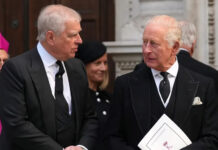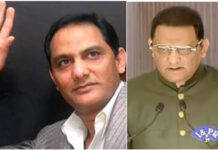From Aljazeera:
When earthquakes struck southern Turkey and northwest Syria on February 6, the world was riveted by the tale of the “miracle baby,” who was born in the ruins as her mother perished.
As their home collapsed on them, killing every member of her family, she was taken in by their close neighbors. ye.This is the story of them rebuilding their lives as baby Afraa completes 40 days – traditionally a time of celebration for both baby and mother in Syria.
Instead, infant Afraa now resides in a makeshift camp established by her extended family members whose homes were destroyed in the earthquakes with her “new family”: her paternal aunt Hala, 31, and her husband and kids.
Mal al-Sham, her oldest new cousin, is 10 years old, and Ataa, her youngest new cousin, was born two days after Afraa and is only one month old.
To discuss about Afraa’s birth, finding her among the wreckage, and their anguish over losing their loved ones, the family invited Al Jazeera into their modest tent.
‘I just knew his house had collapsed’

When the earthquakes struck, Hala’s 34-year-old husband Khalil Shami Al-Suwadi was awake, two of his children had just woken up, and he was sitting up with them. He was anxious because the previous night had been unsettling.
Abdullah, his 26-year-old brother-in-law, had joined him and Hala for dinner and they had offered that he stay with them later and spend the night at their home. Family members could simply move between their residences because they were immediately next to one another.
Al-Suwadi and his sister received an apology from Abdullah, also known as Abu Rudayna (Father of Rudayna, his eldest kid), who explained that he had to visit some acquaintances first before returning home. Eventually, at around two in the morning, Abu Rudayna modified his online status to include a quote from the Quran: “Your death will come to you even in your home,” al-Suwadi told Al Jazeera in awe.
Al-Suwadi claims that when the first earthquake struck, he was certain that his cousin’s family had been killed when the home next door fell on them. Rushing outdoors, he saw that his worries were realized, and they started excavating, first by hand and later with tools that a friend in Idlib had lent them. Someone once approached al-Suwadi and asked if he could come see if he could identify a woman whose body had been partially exposed.
Al-Suwadi heard noises coming from under the rubble and briefly hoped that his cousin was alive before realizing the sounds were coming from a baby. He later identified the woman as his cousin’s wife Umm Rudayna and increased the digging efforts. The infant was soon removed from her mother’s body once enough debris had been cleared, and a disoriented al-Suwadi held her while someone went in search of a knife to cut the umbilical cord that was still connected Afraa to Umm Rudayna.
By that point, I was aware that the rest of the family had perished, so I took the infant and sped off to the military hospital in Jandaris to try to save her. My wife, who was extremely pregnant at the time and went into labor two days later, was unable to accompany me, so our Kurdish neighbor, Umm Abdou, did.
“In the military hospital, they informed us that the infant appeared healthy and only need a woman to breastfeed it. But, I didn’t feel good about what they were saying because it made no sense. As a result, we continued on to Afrin where we discovered a hospital with a doctor who looked after her until we could bring her home. They looked after her there for days.
Hala told Al Jazeera on the phone, “She [Afraa] broke three ribs and has dust in her lungs because she was born under the rubble. She has routine follow-up care at the hospital, but overall she is doing well.
“I nurse both girls,” I would never have abandoned Afraa. My niece; she is my own blood. Although many people wanted to adopt her, we refused. She will receive the same level of care as one of our own children, said Hala.

Hala’s words were mirrored by Al-Suwadi, who said, “I loved my cousin, everyone did, and I’ll look after his kid like she’s my own. I refused to allow her to be taken in and adopted by her father’s family. After speaking with her grandparents, they gave us the go-ahead to adopt her as one of our kids.
In addition to the fact that Afraa is the only member of the extended family still alive, there is a palpable sense of excitement surrounding her in the family tent. This may be because she has recently returned from a second stay at the hospital after al-Suwadi admitted her there because she was having breathing difficulties a few days prior to Al Jazeera’s visit.
“When my parents brought Afraa home, I was overjoyed. You know, she’s my cousin,” eight-year-old Doaa said Al Jazeera.



